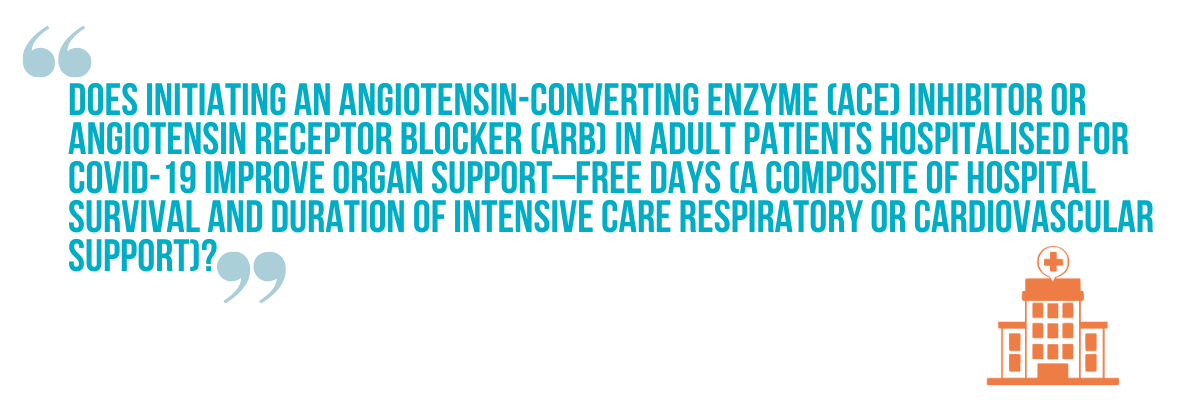REMAP-CAP: NEW RESULTS FROM THE ACE2 RAS DOMAIN!
Results have shown that In this randomised clinical trial that included 779 patients, the median age of which was 56 years, initiation of an ACE inhibitor or ARB did not improve organ support–free days. Among critically ill patients, there was a 95% probability that treatments worsened this outcome.
ACE2 is a key regulator of the renin-angiotensin system and is found in the respiratory epithelium and vascular endothelium. It serves as the receptor for the SARS-CoV-2 virus in humans. The virus disrupts ACE2 function, leading to an increase in angiotensin II levels in COVID-19 patients. Angiotensin II causes inflammation, coagulation, and fibrotic responses, as well as vasoconstriction, which can contribute to microcirculatory dysfunction and ventilation/perfusion mismatch. These pathogenic responses are typical of severe COVID-19, and reducing angiotensin II activity may improve patient outcomes.
Between March 16, 2021, and February 25, 2022, a total of 779 adult patients (721 critically ill and 58 non-critically ill) from 69 sites in 7 countries were enrolled in an adaptive platform randomised clinical trial. The trial aimed to investigate the efficacy of RAS inhibitor compared to the control group. The final follow-up was conducted on June 1, 2022.
The main focus of this study was to measure organ support-free days, which is a combination of hospital survival and the number of days a patient is alive without the need for cardiovascular or respiratory organ support for 21 days. The analysis was conducted using a Bayesian cumulative logistic model, where odds ratios (ORs) greater than 1 indicate better outcomes.
On February 25, 2022, enrollment was discontinued due to safety concerns. The chances that ACE inhibitors and ARBs resulted in a decline in organ support-free days compared to the control group were 94.9% and 95.4%, respectively.
Among the critically ill participants, hospital survival rates were 71.9% in the ACE inhibitor group, 70.0% in the ARB group, and 78.8% in the control group. The probabilities that ACE inhibitors and ARBs led to a decrease in hospital survival compared to the control group were 95.3% and 98.1%, respectively.
In conclusion, in this trial, among critically ill adults with COVID-19, initiation of an ACE inhibitor or ARB did not improve, and likely worsened, clinical outcomes.
The REMAP-CAP trial continues to produce important insights into the fight against COVID-19. These results prove that the elimination of certain treatments allows us to shift the focus to other treatments that have the potential to provide better health outcomes. Through trials like REMAP-CAP, we have the chance to change our health systems for the better and impact the lives of humans on a global scale.






